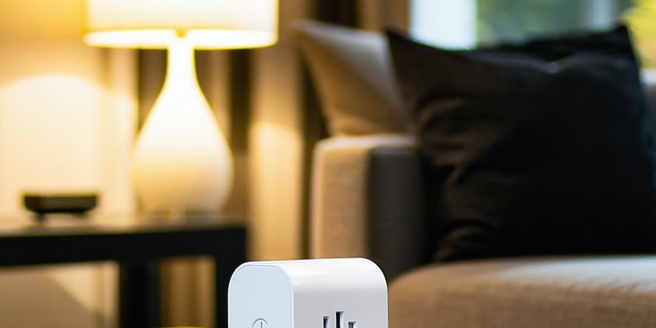Energy Efficiency Through Smart Plugs

Understanding Smart Plugs and Their Benefits
Smart plugs are innovative devices that connect to your home appliances and allow control via a smartphone app or voice commands. By plugging into a standard outlet, smart plugs enable you to manage the power supply to various devices, enhancing convenience and control. One key benefit of smart plugs is their ability to help you monitor and reduce energy consumption. With real-time data on energy usage, you can identify which appliances are using the most power and make informed decisions to minimize waste. Additionally, smart plugs can significantly improve safety by allowing you to turn off forgotten appliances remotely, reducing the risk of fire hazards. As the awareness of energy efficiency grows, integrating smart plugs into your home offers an accessible way to contribute to a more sustainable lifestyle.
How Smart Plugs Enhance Energy Efficiency
Smart plugs are revolutionizing the way we conserve energy at home. By providing users with insights into their energy consumption patterns, smart plugs enable more informed decisions. These devices allow users to schedule appliances to turn off during peak energy hours, optimizing electricity usage. Additionally, smart plugs can automatically switch off devices when not in use, further preventing unnecessary power drainage. Over time, this reduced energy waste contributes to lower electricity bills. Besides cost-saving, the environmental benefits are significant as well. By reducing electricity demand, we decrease the strain on power grids and the need for non-renewable energy sources. Therefore, smart plugs play a crucial role in enhancing household energy efficiency, making them a valuable addition to homes aiming for sustainability.
Choosing the Right Smart Plug for Your Home
When selecting a smart plug, consider functionality, compatibility, and price. Start by evaluating the specific needs of your household. Some smart plugs come with features such as energy monitoring and scheduling, which can be beneficial for reducing energy usage. Check the compatibility with your existing ecosystem of smart home devices and the platform you use, such as Alexa or Google Home. Next, consider the design and size of the plug, ensuring it fits your outlet configuration without obstructing other sockets. Budget is also essential, as prices vary based on advanced functionalities offered. Researching customer reviews and brand reliability can also guide your decision, ensuring you invest in a product that meets your expectations and enhances your home’s energy efficiency.
Integrating Smart Plugs with Home Automation Systems
Integrating smart plugs into your home automation system elevates convenience and efficiency. Once connected, smart plugs function seamlessly with other smart devices, such as thermostats, lights, and security cameras, via platforms like Google Home or Amazon Alexa. This integration enables centralized control and management, providing streamlined access to your home infrastructure. Automating the operation of home appliances is a key advantage—smart plugs can be programmed to turn devices on or off based on specific conditions or routines within your automation system. For instance, smart plugs can switch off lights when no motion is detected, conserving energy. By building a robust automated environment, you not only enhance convenience but also improve energy efficiency, driving towards a smarter, eco-friendly home.
Case Studies: Real-world Energy Savings with Smart Plugs
Case studies demonstrate significant energy savings achieved through the use of smart plugs. In one instance, a family integrated smart plugs into their home, centering on high-energy appliances such as heaters and air conditioners. By scheduling these devices to operate during off-peak hours and monitoring their energy use, the family reported a 15% reduction in their monthly electricity bill. Another example involved a small business that utilized smart plugs to manage office equipment. Their approach included automatically turning off computers and lights after work hours. As a result, energy consumption decreased by approximately 20%, translating into annual savings and environmental benefits. These case studies highlight how smart plugs, with their ability to control energy use actively, play a pivotal role in reducing electricity costs and promoting sustainability.
Future Trends in Smart Plug Technology
Smart plug technology is evolving rapidly, promising exciting future trends. One development to watch is the integration of artificial intelligence, which will enhance the plug’s ability to learn and predict user behavior, optimizing energy usage without manual input. Additionally, increased compatibility with renewable energy systems is on the horizon, allowing smart plugs to work alongside solar panels and home batteries, creating sustainable energy ecosystems. Enhanced security features will also be a priority, safeguarding against data breaches. In the coming years, we can expect smart plugs to offer more insightful data analytics, empowering users to make even more informed decisions about their energy consumption. With these advancements, smart plugs will continue to facilitate smarter homes, contributing to a broader movement toward energy efficiency and sustainability.